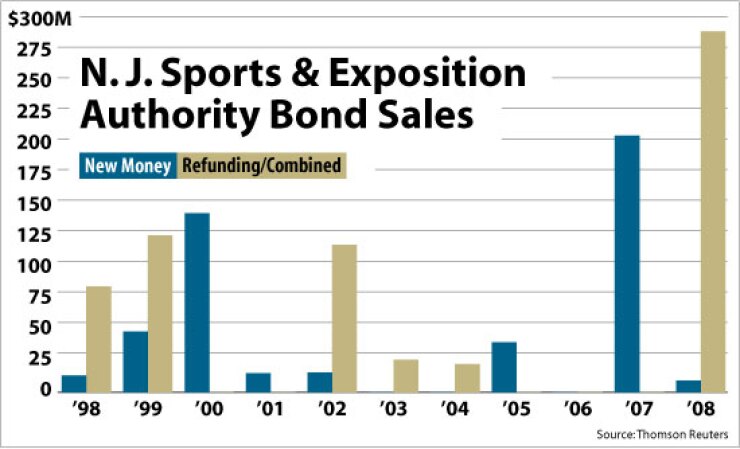
New Jersey Gov. Chris Christie Wednesday released recommendations on how the state can improve its gambling and entertainment venues that have struggled during the economic downturn, including the use of tax-exempt bonds to help complete the stalled Xanadu project.
While Atlantic City casinos account for nearly $1 billion of state and local taxes, the industry since 2007 has lost more than 25% of its gross revenue base, or $1 billion of lost revenue. This is due in part to increased and expanded gaming in other states. In addition, casino employment has fallen to 38,000 jobs from 50,000.
The suggestions are part of an economic recovery report crafted by the governor’s advisory commission on New Jersey gaming, sports, and entertainment.
Along with boosting Atlantic City casinos, the state is seeking to address several entertainment facilities, including the Xanadu project, which was supposed to open in 2007, the Meadowlands Racetrack, and the Izod Center in the Meadowlands complex.
“This report is a blueprint that will guide our efforts in managing and protecting our gaming, sports and entertainment resources more responsibly and reforming issues critical to New Jersey’s economic future,” Christie said in a statement. “I look forward to reviewing all of the commission’s recommendations so that we can put these industries on a solid foundation and path to long-term economic growth and prosperity.”
The report suggests that the New Jersey Sports and Exposition Authority no longer operate venues and instead officials should sell or lease the agency’s facilities. The authority has roughly $691 million of outstanding debt, most of which is state-contract bonds.
Possible plans include allowing private companies to operate the IZOD Center, former home of the New Jersey Nets, and the PNC Arts Center in Holmdel. The report also recommends that the NJSEA end operations at the Meadowlands Racetrack and lease the facility for $1 a year for three years to the Standardbred Horsemen.
In looking at the Xanadu project, the commission suggests the state assist the project with recovery-zone facility bonds and-or economic redevelopment and growth grant program bonds. The Xanadu development is a three-story entertainment and retail complex project that is next to the new Meadowlands Stadium where the New York Giants and the New York Jets play.
New Jersey’s RZF allocation is $376 million, including $46 million for Bergen County, where the project is located. ERG bonds are secured by 75% of a project’s future tax revenue for 20 years.
“With respect to prospects for identifying funds sufficient to complete the project, today an adequate financial package can be put in place if, and only if, the package includes some level of tax-exempt financing,” the report reads.
In looking at NJSEA’s budget, the report recommends crafting a 2011 budget by Sept. 1 that is break even or better. The authority should use its more than $50 million of cash reserves to help balance its budget. The report also calls for the state’s Treasury Department to offer the NJSEA a revolving credit facility of no more than $15 million to help meet its cash-flow needs.
Regarding Atlantic City, the commission suggests that the state create and oversee a “clean and safe” tourism district that would improve the area’s look nd help to combat crime within one year. The district would encompass the city’s 11 casinos and other attractions.
The report calls for a master plan of the new district to be drafted by July 1, 2011. That plan would include strategies for building both gaming and non-gaming attractions to increase demand in the city. The commission seeks to increase the city’s meeting and convention business by 30% annually during the next five years. The report also calls for additional marketing efforts “on par with other national destination resorts” and improving transportation to Atlantic City, including increased air, rail, and ferry options.
“The status quo is not workable,” the report reads. “In simple terms, almost every potential Atlantic City customer has a closer, more convenient place to gamble. If Atlantic City cannot provide reasons for customers to make the trip, its decline with continue.”
In response to the report, Sen. Raymond Lesniak, D-Union, questioned where the funds will come from to help Atlantic City transform itself into not only a gaming city, but also an entertainment and conference destination.
“The proposals outlined by the task force could lead to massive construction in Atlantic City, except that the task force failed to answer one question: where’s the money coming from?” Lesniak said in a statement. “Taking over Atlantic City can only be justified if it substantially increases capital investment into Atlantic City. The one question every casino executive should be asked and be expected to answer is how much additional capital are they prepared to invest as a result of a state takeover?”





